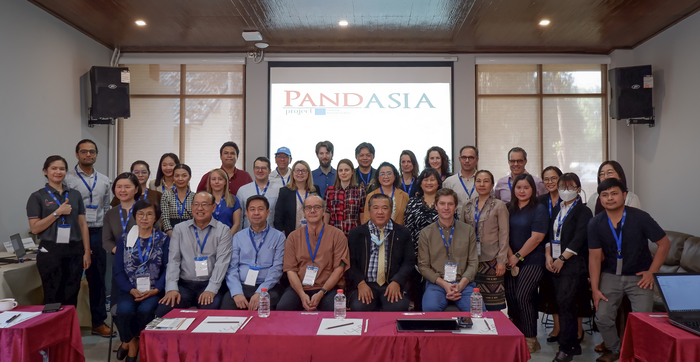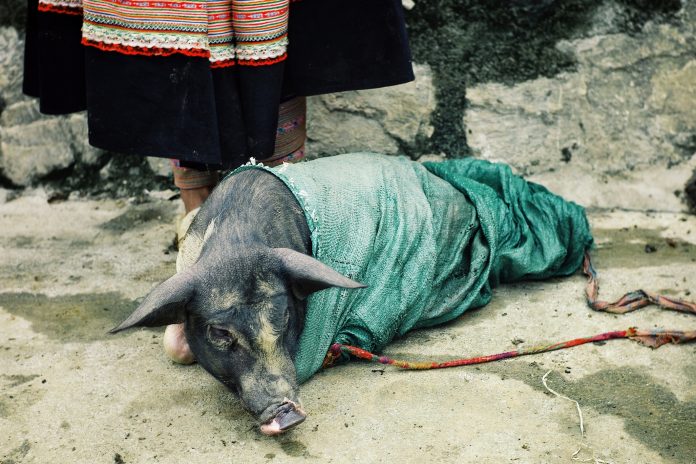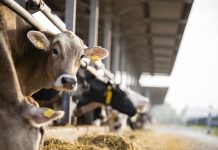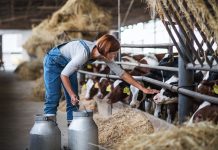Zoonoses – zoonotic pathogens spread between animals and humans – have been a concern of the international community since COVID-19
To tackle increasing disease risk from zoonoses, an EU-funded, transdisciplinary scientific project titled ‘PANDASIA’ is to investigate future risks of new pandemics in Thailand and generate preventive measures.
Emerging infectious diseases, caused by zoonotic pathogens such as viruses and bacteria are transmitted between animals and humans, pose an increasing threat to global health – and are only increasing in frequency due to unsafe agricultural practices.
Zoonoses occur primarily where wild animals and humans come into regular contact. Certain diseases spread faster and more intensely depending on species diversity, human population density, and movement.
The most common zoonoses in humans are campylobacteriosis and salmonellosis, and the most frequent method of infection is through the consumption of contaminated food or water.
Southeast Asia is considered as hotspot for the emergence of new zoonoses and subsequent pandemics, which is why researchers took to this region to develop solutions.
Climate change and loss of biodiversity accelerate the risk of new pandemics
Enhancing the health literacy of different target groups and communities, the Kick-Off-Meeting of the EU PANDASIA project took place in Khon Kaen in north-eastern Thailand from the 13-17 of February 2023.
The community of researchers consisted of biologists, veterinarians, mathematicians, sociologists and human medical doctors from Norway, Sweden, United Kingdom, Germany, and Thailand.
Helping to reduce the risk of local outbreaks becoming global pandemics
Deeply investigating zoonotic “spillover infections”, the researchers aim to develop a predictive framework with effective preventive measures in local communities in Thailand to determine their exposure to wildlife and livestock.
Biodiversity specialists will sample the relevant biodiversity which virologists will then examine for viruses that have the potential to spill over to humans, and the data will be used for other countries in Europe and Asia.
Developing models to predict future risk of zoonoses
Hans J Overgaard, the project coordinator from the Norwegian University of Life Sciences, said: “How does a local pandemic develop into a global threat and how can this process be avoided or stopped in time?
“PANDASIA is a new, transdisciplinary EU project by universities and research institutions in Europe and Thailand with the aim of investigating the origin of pandemics guided by the ‘One Health’ approach.
“This transdisciplinary approach applies human, animal and environmental health and social science”.
The PANDASIA project is funded by the EU HORIZON.2.1 – Health programme “European Union Research and Innovations Actions”.

Pandemic preparedness and prevention literacy (3PL) intervention
Since pandemics first occur at the local level, it is extremely important for the scientists of this project to work closely with local government units and communities, non-governmental organisations and environmental and agricultural authorities in Thailand to improve their pandemic health literacy.
A 3PL intervention will be developed and tested to improve the knowledge and practices of local communities and to reduce and prevent possible zoonotic transmission.
This will help to reduce the risk of local outbreaks becoming global pandemics.
Who are the consortium members involved in PANDASIA?
• Norwegian University of Life Sciences (NMBU)
• Norwegian Veterinary Institute (NVI)
• Khon Kaen University (KKU)
• Leibniz Institute for Zoo and Wildlife Research in Berlin (Leibniz-IZW)
• Universitätsklinikum Heidelberg (UKHD)
• Queen Mary University of London
• Center of Excellence for Emerging and Re-emerging Diseases in Animals (CU-EIDAs) at the Faculty of Veterinary Science
• Chulalongkorn University (CU)
• Umeå University
• Faculty of Environment & Resource Studies, Mahidol University (MU)
• SUPA71 Co., Ltd.











